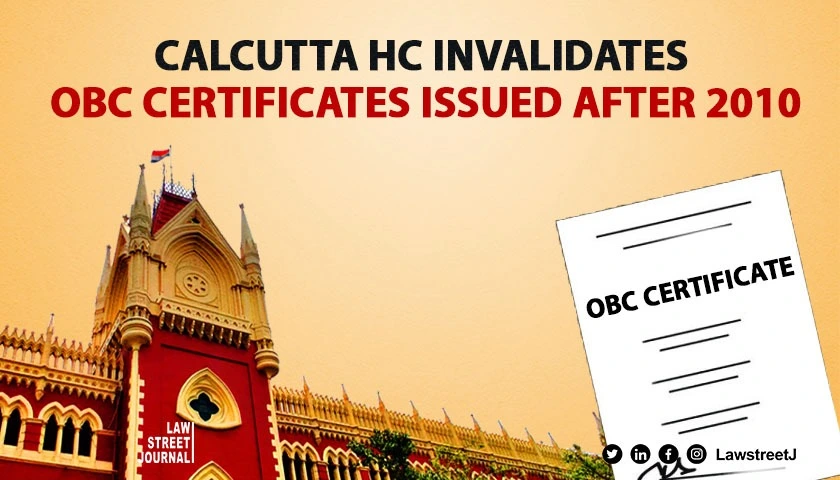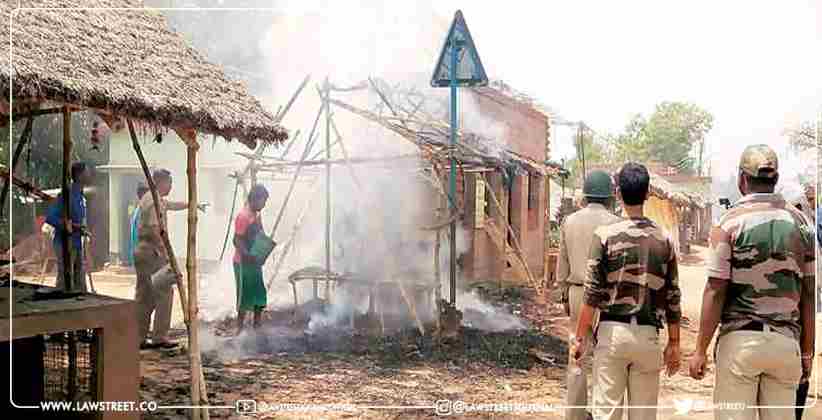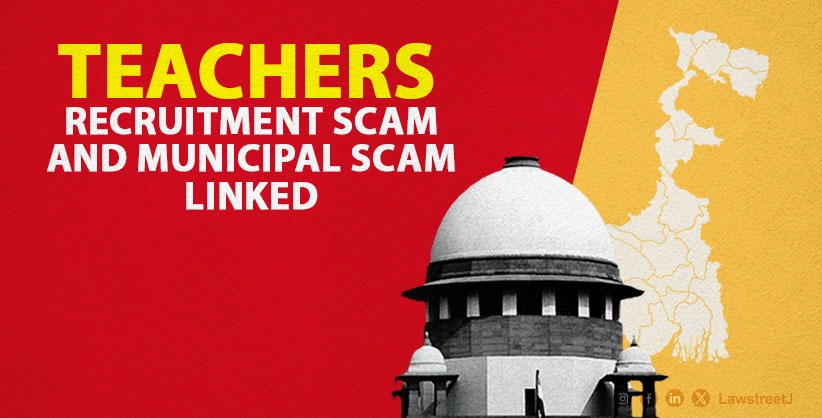Calcutta: The Calcutta High Court recently set aside all Other Backward Castes (OBC) certificates issued by the West Bengal government after the year 2010, terming them "illegal."
The Division Bench of Justice Tapabrata Chakraborty and Justice Rajasekhar Mantha struck down sections 2H, 5, 6, and Section 16 and Schedule I and III of the West Bengal Backward Classes (Other than Scheduled Castes and Scheduled Tribes) (Reservation of Vacancies in Services and Posts) Act, 2012, as 'unconstitutional.'
The batch of petitions challenged the identification and classification of 77 classes as Other Backward Classes (OBCs) in the State of West Bengal and also challenged the constitutional validity of some provisions of the West Bengal Backward Classes (Other than SC and ST) (Reservation in Posts) Act of 2012.
In its judgment, the court observed that the commission and the state acted with undue haste and "lightning speed" in making recommendations for the classification of the 77 classes to fulfill the public announcement of the then Chief Minister.
The court also examined whether religion alone could serve as the sole basis for the recommendations of the Commission under Article 16(4) of the Constitution and the provisions of the Act of 1993. It held that the selection of 77 classes of Muslims as Backward was an affront to the Muslim community as a whole.
Further, the court held that there was no doubt that the said community had been treated as a commodity for political ends, with their inclusion being treated as a vote bank, which was therefore also an affront to democracy and the Constitution of India.
The court noted that while the commission's reports purported to show that reservations were not made based on religion, in reality, they did not align with the constitutional principles of impartial and secular reservation.
The reports of the Commission adhere to a pattern that indicates the Commission being wanted or directed to grant benefits to a particular community, namely the Muslim community. This pattern is hit by PROCEDURAL IMPROPRIETY, the court said.
Additionally, the court, while considering the principle of prospective overruling, referred to a series of cases and, considering the potential economic impact on citizens belonging to the 77 designated classes, ruled that individuals from these classes who were appointed to state services and had already benefited from reservations under Article 16(4) before the delivery of this judgment could not have their services terminated or their benefits revoked due to illegal classification or sub-classification. However, it clarified that the executive order classifying 66 communities as OBC prior to 2010 would not be interfered with since it was not challenged.
Furthermore, the court directed the Backward Classes Welfare Department of the State to place a report before the Legislature, in consultation with the Commission, for the inclusion of new classes or the exclusion of the remaining classes, in the State List of OBCs.





![Calcutta High Court conducts late-evening hearing, orders release of lawyer arrested inside court [Read Order]](/secure/uploads/2023/12/lj_4146_Court_lawyers_arrest.jpg)
![Indian Courts this Week: Law Street Journal's Weekly Round-Up of SC & HCs [Jan 1 - Jan 6]](/secure/uploads/2024/01/lj_9050_WhatsApp_Image_2024-01-06_at_12.07.10_PM.jpeg)




